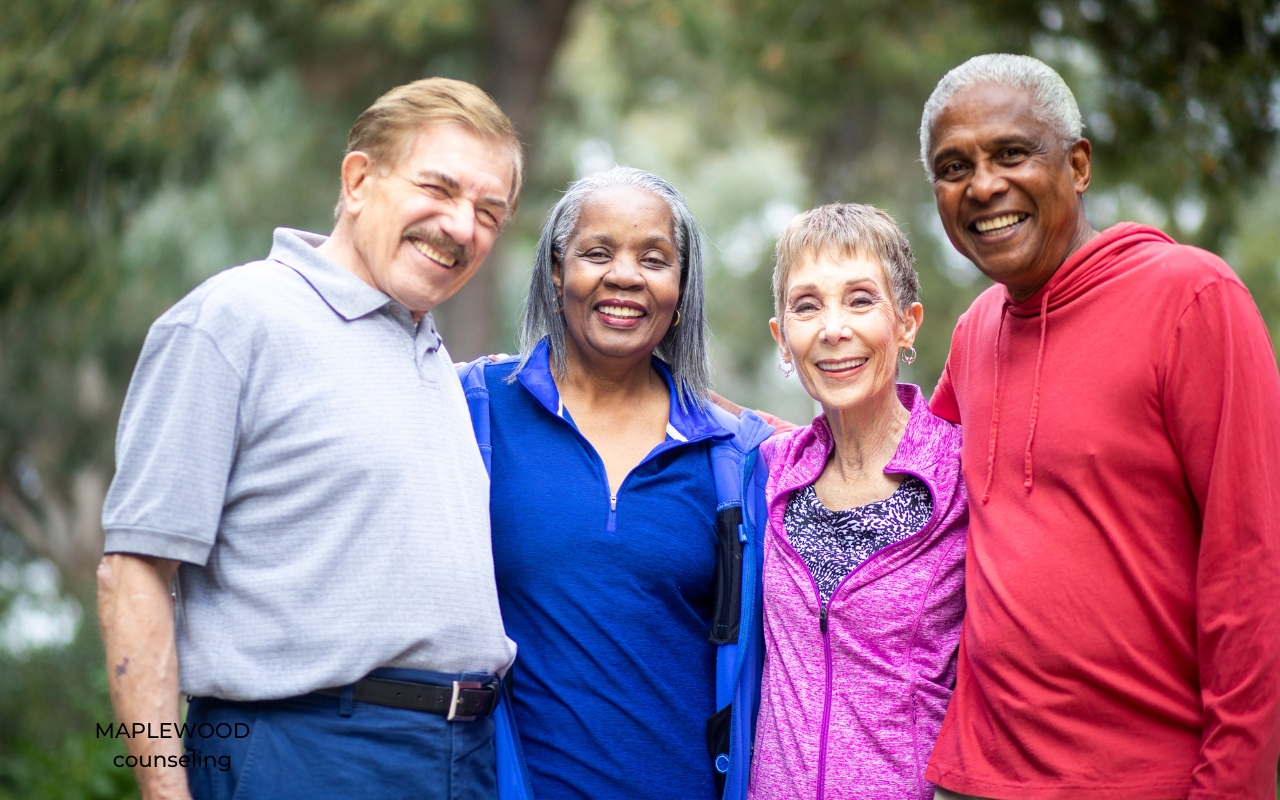Marriage Counseling for Seniors and Older Couples

Marriage Counseling for Seniors and Older Couples

Navigating Relationship Challenges in Later Life
As we age, our relationships evolve and face unique challenges that can be difficult to navigate without support. For senior couples, whether in long-term marriages, second marriages, or newly formed partnerships, the complexities of aging can place significant strain on their relationship. Marriage counseling for seniors offers an invaluable resource for those seeking to strengthen their bond and address the issues that arise in later life.
In this blog post, we’ll explore the common issues faced by senior couples and how marriage counseling for seniors can provide the necessary support to enhance their relationships. We’ll also include valuable insights on when individual therapy might be beneficial, especially if one partner is reluctant to attend counseling.
Issues Faced by Long-Term Marriages
Lack of Intimacy
Over time, many couples ans empty nesters experience a decline in physical and emotional intimacy. This can be due to various factors such as health issues, hormonal changes, or simply drifting apart. Lack of intimacy can lead to feelings of loneliness and disconnection. Marriage counseling for seniors can help couples rekindle their intimacy by addressing underlying issues and developing strategies to reconnect.
Complete Disconnection
Some senior couples find themselves completely disconnected, no longer getting along, and unsure of how to bridge the gap. This may stem from years of unresolved conflicts or changes in individual interests and lifestyles. Counseling provides a safe space to explore these disconnections and work towards rebuilding a meaningful relationship.
Unhappiness and Uncertainty
Feeling unhappy in a marriage and not knowing what to do next is a common sentiment among senior couples. Marriage counseling offers guidance and support to help couples understand their feelings, communicate effectively, and find ways to improve their relationship satisfaction.
Specific Challenges for Senior Couples

Chronic Illness and Caregiving
Dealing with a sick spouse who has chronic, terminal, or other serious medical issues can put immense pressure on a marriage. The healthy partner often takes on the role of caregiver, which can be both physically and emotionally exhausting. Counseling can help couples manage these challenges by fostering empathy, understanding, and practical coping strategies.
Dementia or Alzheimer’s Disease
When a spouse suffers from dementia or Alzheimer’s, it can dramatically alter the dynamics of the relationship. The caregiver may feel overwhelmed, leading to feelings of isolation and helplessness. Marriage counseling for seniors can provide support for the caregiving spouse and help them navigate the emotional complexities of this journey.
Fear About the Future
Aging brings about fears and uncertainties regarding the future, whether together or alone. Concerns about health, financial stability, and the prospect of living without a partner can cause anxiety and stress. Counseling can help couples address these fears, plan for the future, and support each other through life’s transitions.
When Individual Therapy Might Be Necessary
Reluctance from Your Spouse
Sometimes, one partner may be unwilling to attend therapy sessions. In such cases, individual therapy can be a valuable alternative. It allows the willing partner to explore their feelings, gain insights, and develop coping mechanisms independently. Individual therapy can also equip them with tools to better communicate and encourage their partner to seek help.
Personal Reflection and Growth
Even if your spouse is not on board, individual therapy can be beneficial for personal growth and understanding. It provides an opportunity to reflect on your own emotions, behaviors, and contributions to the relationship. This self-awareness can lead to positive changes that may influence the overall dynamics of the marriage.
Turning Things Around
Rekindling Joy and Connection
For many senior couples, the desire to enjoy time together and turn things around is strong. Marriage counseling offers a pathway to rediscovering joy and connection in the relationship. Through therapeutic interventions, couples can learn to communicate effectively, resolve conflicts, and find new ways to connect emotionally and physically.
Addressing Aging Concerns
Concerns about aging, illness, and what lies ahead can be daunting. Marriage counseling for seniors can help couples address these fears collaboratively, providing support and reassurance. By working together, couples can build a resilient partnership capable of facing the future with confidence.
Alleviating Loneliness and Anxiety
Feelings of loneliness, depression, and anxiety are common among seniors. Counseling provides a supportive environment to express these emotions and develop strategies to alleviate them. It can also help senior couples understand each other’s emotional needs and offer mutual support.
Caregiver Support and Relief
Caregivers often feel completely wiped out and exhausted. Counseling can offer much-needed support and relief, helping caregivers manage their responsibilities without sacrificing their well-being. It can also facilitate discussions about seeking additional help and resources.
Conclusion
Marriage counseling for seniors is a powerful tool for addressing the unique challenges faced by senior couples. Whether dealing with lack of intimacy, complete disconnection, chronic illness, fear about the future, or caregiver exhaustion, counseling provides the support needed to navigate these issues effectively.
By seeking professional help, senior couples can enhance their relationship, enjoy their time together, and face the future with renewed confidence. If you or someone you know is struggling with these challenges, consider reaching out for marriage counseling or individual therapy. It’s never too late to invest in your relationship and build a stronger, more fulfilling partnership.
Discover Marriage Counseling for Seniors
If you are looking for marriage counseling for seniors or by yourself, reach out. Together, we can help you navigate the complexities of aging and, when possible, strengthen your bond with your partner.
Are You a Caregiver for a Family Member?

